
Senior writer Tina Hesman Saey is a geneticist-turned-science writer who covers all things microscopic and a few too big to be viewed under a microscope. She is an honors graduate of the University of Nebraska-Lincoln where she did research on tobacco plants and ethanol-producing bacteria. She spent a year as a Fulbright scholar at the Georg-August University in Göttingen, Germany, studying microbiology and traveling. Her work on how yeast turn on and off one gene earned her a Ph.D. in molecular genetics at Washington University in St. Louis. Tina then rounded out her degree collection with a master’s in science journalism from Boston University. She interned at the Dallas Morning News and Science News before returning to St. Louis to cover biotechnology, genetics and medical science for the St. Louis Post-Dispatch. After a seven year stint as a newspaper reporter, she returned to Science News. Her work has been honored by the National Academies of Sciences, Engineering and Medicine, the Endocrine Society, the Genetics Society of America and by journalism organizations.

Trustworthy journalism comes at a price.
Scientists and journalists share a core belief in questioning, observing and verifying to reach the truth. Science News reports on crucial research and discovery across science disciplines. We need your financial support to make it happen – every contribution makes a difference.
All Stories by Tina Hesman Saey
-
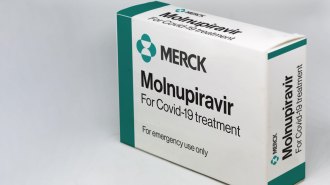 Health & Medicine
Health & MedicineMerck’s COVID-19 pill may soon be here. How well will it work?
Once hailed as a potential game changer, more complete data now reveal drawbacks of Merck’s antiviral COVID-19 pill, molnupiravir.
-
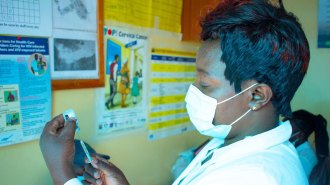 Health & Medicine
Health & MedicineNo, COVID-19 vaccines won’t make you infertile
Contrary to misinformation spread by Aaron Rodgers and Nicki Minaj, neither the Pfizer, Moderna nor J&J vaccines cause infertility, data show.
-
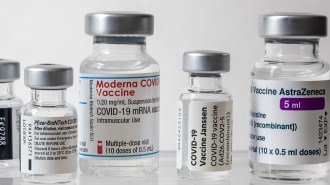 Health & Medicine
Health & MedicineHow to choose a COVID-19 vaccine booster shot
To help you choose between the Pfizer, Moderna and Johnson & Johnson COVID-19 boosters, one reporter looked to the evidence and consulted experts.
-
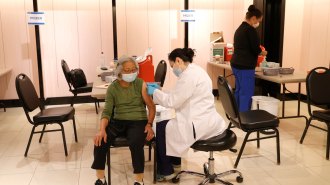 Health & Medicine
Health & MedicineHere’s what we know about booster shots for Moderna’s and J&J’s COVID-19 vaccines
Immunity against the coronavirus is waning, but additional doses of the same or different COVID-19 vaccines could help protect vulnerable people.
-
 Health & Medicine
Health & MedicineDiscovering how we sense temperature and touch wins the 2021 medicine Nobel Prize
Finding sensors on nerve cells that detect temperature and pressure nets California scientists David Julius and Ardem Patapoutian a Nobel Prize.
-
 Health & Medicine
Health & MedicineA new antiviral pill cuts COVID-19 hospitalization and death rates
Merck says its drug, molnupiravir, stops viral replication and can be taken right after a COVID-19 diagnosis.
-
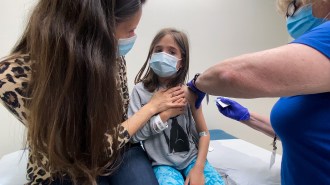 Health & Medicine
Health & MedicinePfizer says its COVID-19 vaccine is safe and works well for kids ages 5–11
A lower dose of the vaccine produced as many antibodies in elementary school–age kids as a full-dose shot did in teens and young adults.
-
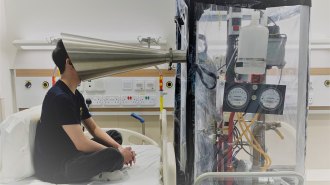 Health & Medicine
Health & MedicineNew studies hint that the coronavirus may be evolving to become more airborne
More coronavirus RNA is in fine aerosols than in larger droplets, but masks can reduce the amount of virus in the air.
-
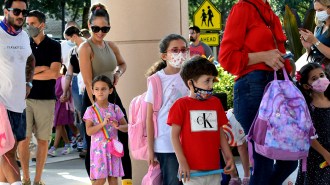 Health & Medicine
Health & MedicineSchools are reopening. COVID-19 is still here. What does that mean for kids?
Children do get COVID-19, and some become very sick and even die. But the disease’s long-term effects on kids remain uncertain.
-
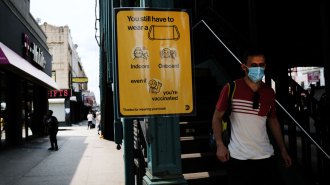 Health & Medicine
Health & MedicineNew delta variant studies show the pandemic is far from over
The coronavirus’s delta variant is different from earlier strains of the virus in worrying ways, health officials are discovering.
-
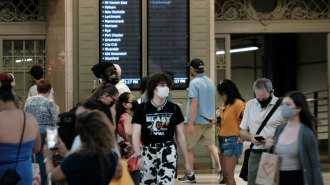 Health & Medicine
Health & MedicineWhy the CDC says it’s crucial to start wearing masks indoors again
While unvaccinated people are driving the spread of the coronavirus, vaccinated people infected with the delta variant may also easily transmit it.
-
 Health & Medicine
Health & MedicineWhy it’s still so hard to find treatments for early COVID-19
Small studies, unexpected side effects and incomplete information about how drugs work can stymie clinical trials for drugs that can treat COVID-19.